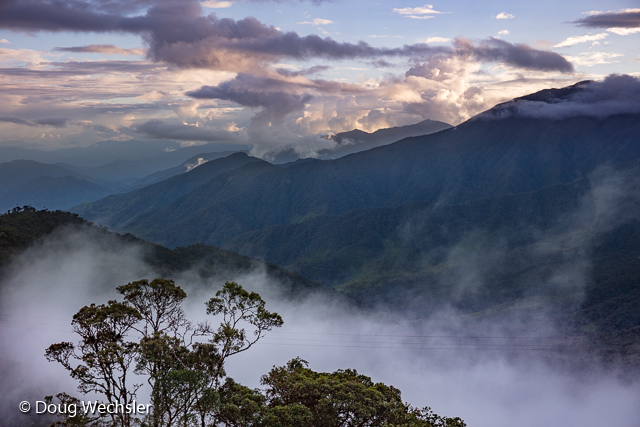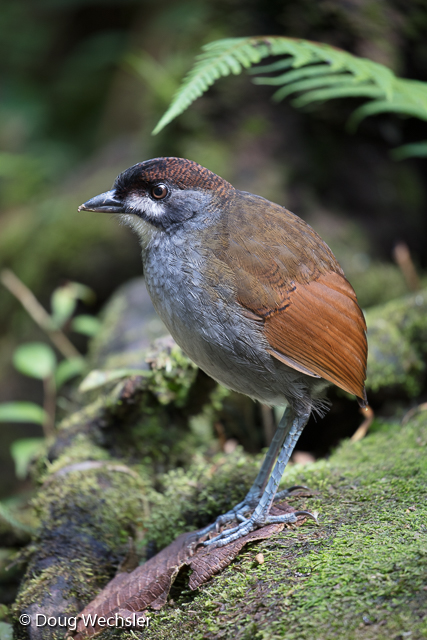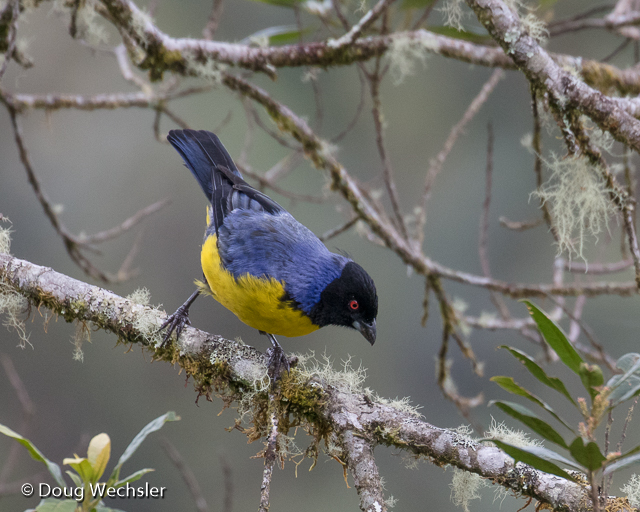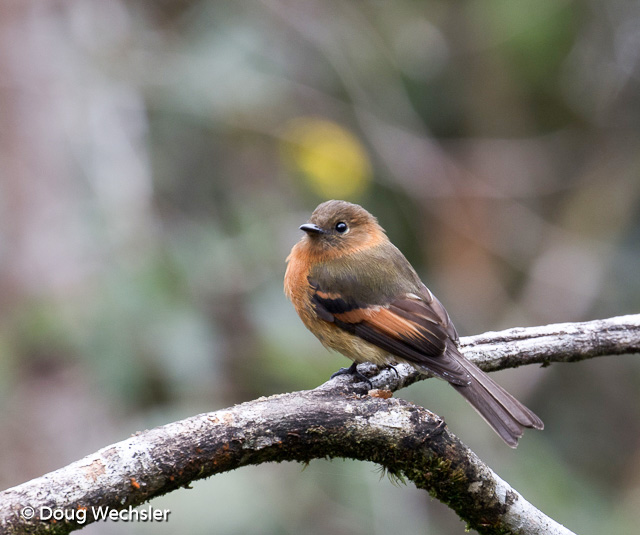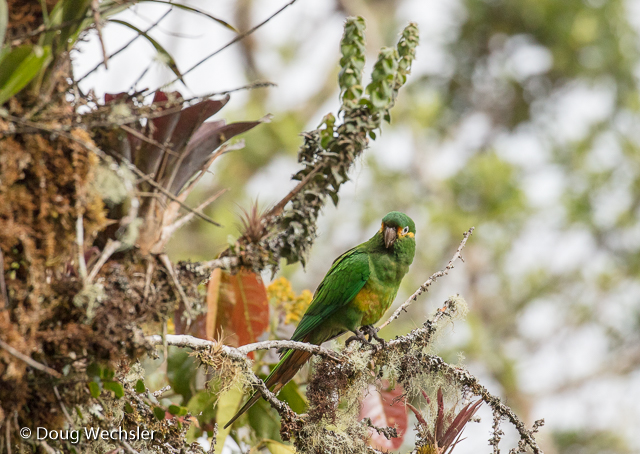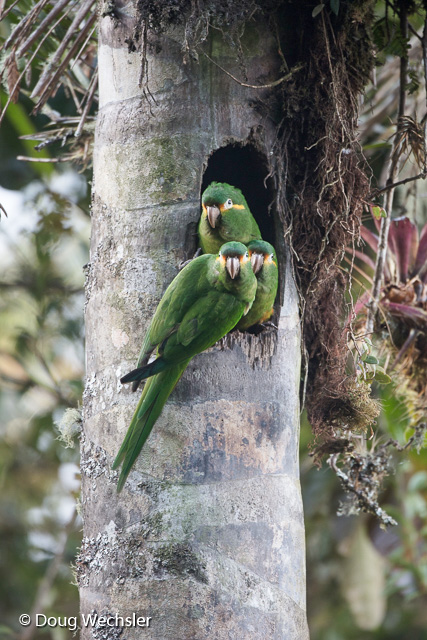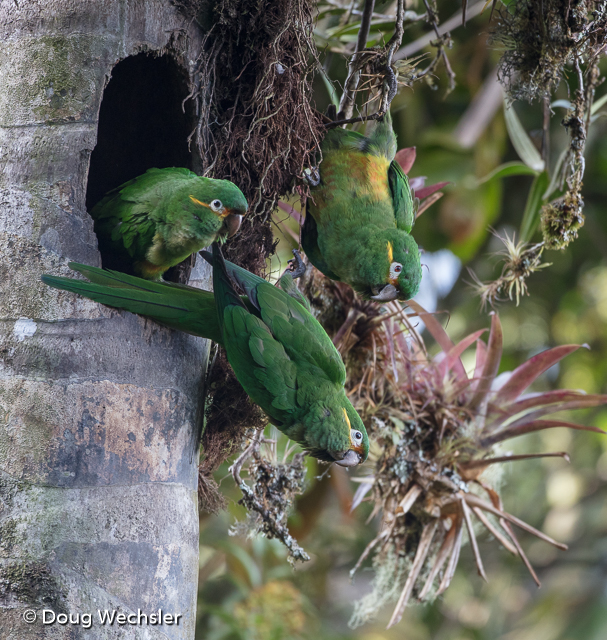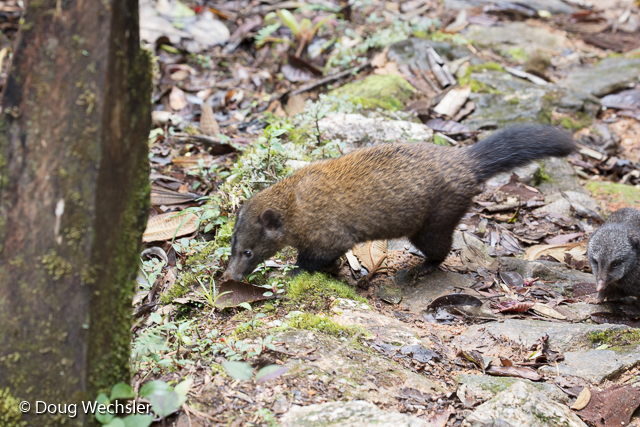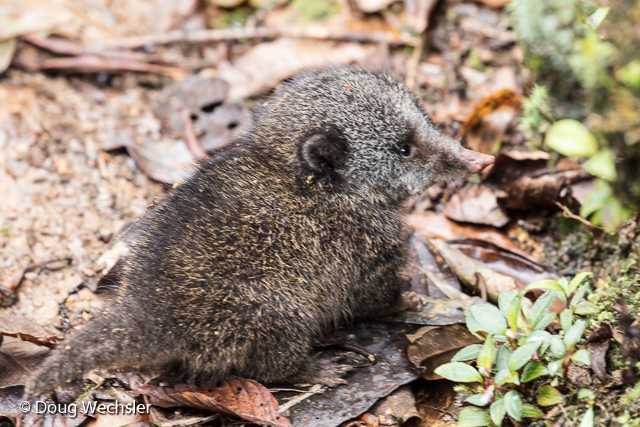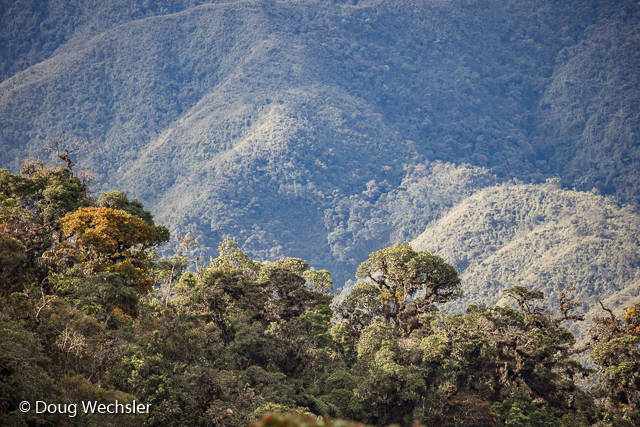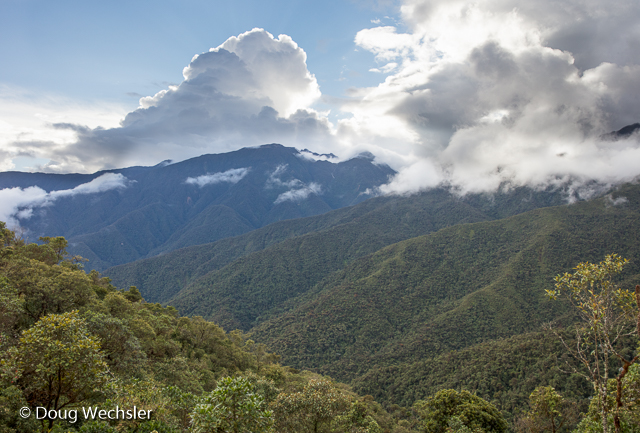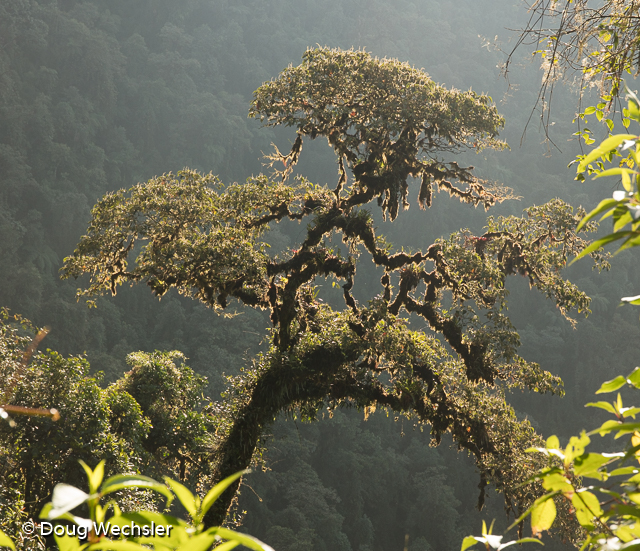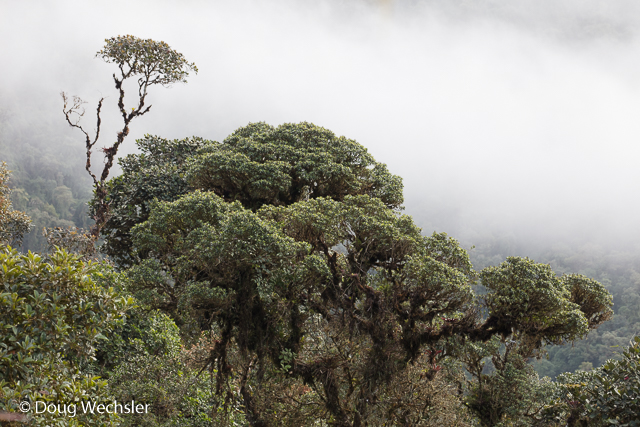It’s great to get back to Tapichalaca Reserve of the Jocotoco Conservation Foundation on the eastern slope of the Andes in Southern Ecuador (map). Here in 1997, the Jocotoco Antpitta made its debut in the world of ornithology and birding. It was the discovery of this charismatic, ground-dwelling bird that sparked the creation in 1998 of the foundation, which now manages eleven reserves.
I have returned for my fifth visit to this holy site to photograph the cloud forest and its inhabitants. Debbie and I served as volunteer hosts in the reserve in December and occasionally took visitors to see the Jocotoco Antpitta at the feeding area.
The pair of Jocotoco Antpittas at the feeding area were being accompanied by a juvenile, which as you will see, has a brown crown and markings that are not quite as bold as the adult’s.
Hooded Mountain Tanager, the largest member of the family was a regular along the Jocotoco Trail.
The soft rattle of the Cinnamon Flycatcher is a common sound around Tapichalaca.
The bird that occupied most of my hours of photography was the Golden-plumed Parakeet.
They nest in wax palm stumps, but the number of wax palms has been reduced due to the practice of collecting leaves for Palm Sunday. The foundation cooperated with the government to curtail that activity. Many nest boxes have been placed around the reserve, but it’s good to see the parakeets using natural cavities as well.
December is the time to begin nesting, so many birds are busy investigating nest cavities. This pair apparently has a helper, perhaps an offspring from a previous season.
We were fortunate to see a Western Mountain Coati with two babies. They are much smaller and squatter than their lowland relatives. Evidence of their digging is conspicuous along the trail.
One of two babies.
I will close with views of the beautiful cloud forest.

